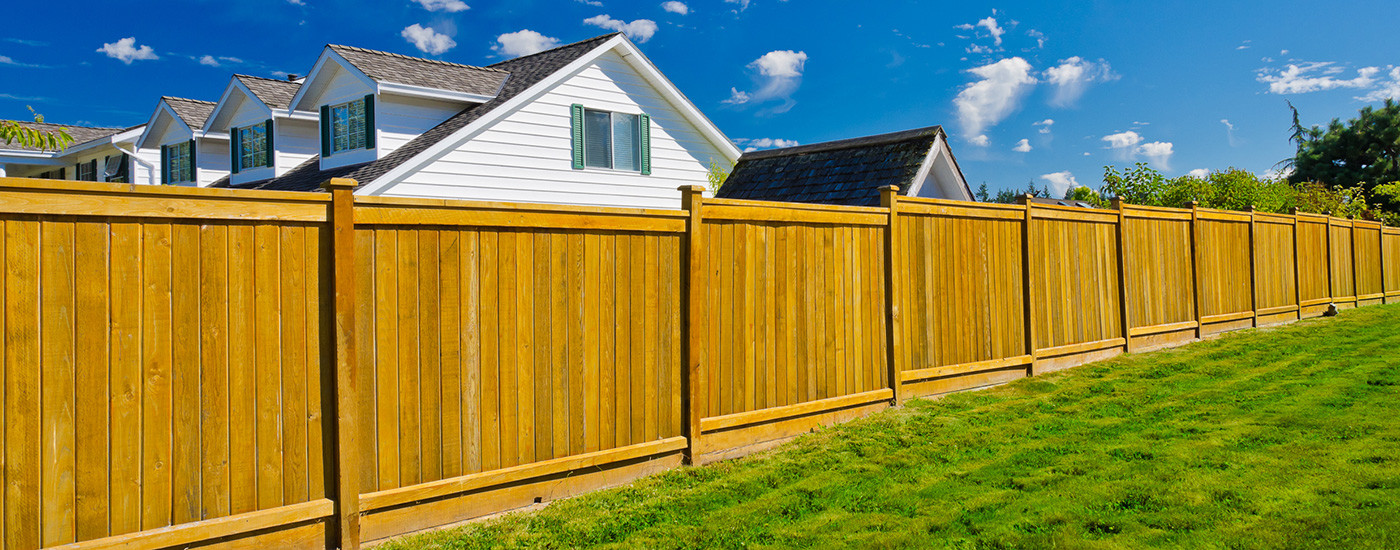Fencing is available in a choice of materials, but for many people nothing beats a timber fence. Aesthetically pleasing and suitable for all house styles, timber fencing is widely available and affordable. Timber fencing is manufactured from hardwood or softwood, depending on whether the tree it originates from is deciduous or evergreen.
Hardwood fencing
As the name suggest, hardwoods are typically harder and have a closer grain. Although less prone to damage and extremely strong and robust, hardwood timber is heavy which can make it difficult to work with, particularly on big projects, as it is more challenging to install. Deciduous trees are slow growers (an English oak can take up to 150 years before it is ready to harvest) and there is much more work needed to produce the timber from them, so hardwood is also an expensive. Hardwoods are naturally darker than softwoods with eye-catching woodgrains, making them popular in design-led applications.
Softwood fencing
Softwoods are harvested from evergreen, coniferous trees such as pine trees and fern trees. Much softer than a hardwood, softwood is easier to work with and as they are usually ready to harvest after 40 years, they are a great fencing option. What a softwood lacks in durability compared to a hardwood, can be made up for with regular applications of protective treatments resulting in a similar life span to its hardwood counterpart. Naturally much lighter in colour, softwoods can be painted and stained to offer more choice and styling options when used in fencing.
The environmental impact of softwood Vs hardwood
Today, we are at our most environmentally aware, so it is important to consider the impact of the timber we choose. Hardwoods have a greater environmental impact than softwoods due to the higher amounts of carbon they absorb during their lifetimes, compared to softwood trees, which is released when they are felled. The earlier maturation point for the faster-growing evergreens means that stock levels of softwood trees can be replenished easily. However, any softwood products chosen should come from sustainable sources.
Our choice for fencing timber at Witham Timber
Our timber products are pressure treated softwood, to give our customers cost-effective solutions and are made up of a variety of species. However, our most popular feather edge or closeboard fencing is manufactured from spruce, which is known for its durability and affordability. Offering a good resistance to rot, spruce is consistent in its colouration which gives a more uniform and pleasing aesthetic to the fence.
With over 40 years’ experience in garden timber and landscaping materials, we stock a wide selection of products for every type of fencing, including fence panels and posts, rails and boards. Our blog article ‘Different types of fencing: a comprehensive guide to fence materials and their properties’ looks closely at our comprehensive selection, which can be found here.
If you are about to carry out any fencing work, and need help with materials or general information, our expert team is happy to answer any questions and can be reached by phone on 01205 359188 or via email at sales@withamtimber.co.uk

